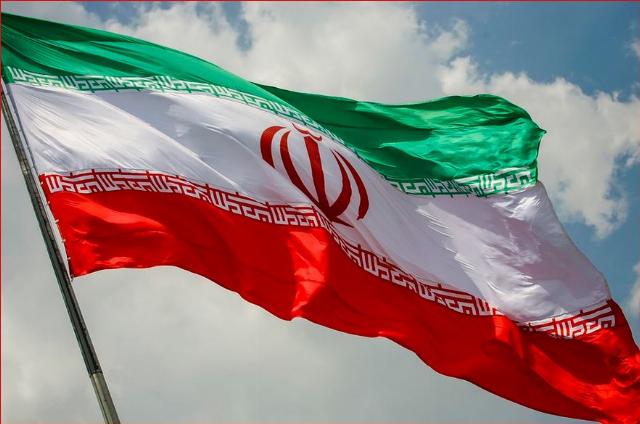Iran: About that two-week deadline...
I just read one of the most disingenuous articles imaginable about strikes on Iran’s nuclear facilities. It skillfully lists the technical specifications Iran must ensure in order to develop a functional nuclear weapon, but after obliging the reader with this expertise, it draws wrong-headed conclusions.
Presented, compliments of Fox News, by retired lt. colonel Robert Maginnis, it argues against a “hasty and unjustified war” against Iran. Insubordinately, he dares to classify White House pronouncements that “Iran has all that it needs to achieve a nuclear weapon” as misinformation. How does he know? Does he still have a security clearance as a retiree?
Hasty? Unjustified? Even if we concede his technical descriptions, the half-bird colonel is still drawing injudicious judgments. We’ve been unduly patient with Iran’s mullahs. Enough is enough. Even if their potential bomb is not yet “ruggedized,” let’s not let them get any further. Does anyone doubt their evil intentions to build a ruggedized nuke with precisely calibrated triggers — and deliver it?
Remember: Iran has plenty of energy sources already. Nuclear supplies only a tiny percentage of Iranians’ needs. That they are protecting an enrichment plant deep inside mountains suggests that even they believe that peace-loving countries (i.e., their righteous enemies) would rationally want to destroy them.
Appeasement is an irrational approach with decrepit and deceitful mullahs who wish for Armageddon. Yet the almost-colonel writes that “deterrence and diplomacy — not preemptive war — must be the first response.” Has he been paying attention for the last two decades? Diplomacy doesn’t work with the Iranian regime. Even with their country being ravaged, even with their proxies prostrate, the wannabe martyrs shun the olive branch.
Here’s another reason why I characterize Maginnis’s piece as “disingenuous.” He writes, “We have been here before. In 2003, the U.S. invaded Iraq over weapons of mass destruction that did not exist.” What a myopic analogy. No one is even hinting at boots on the ground or nation-building. This is an entirely different scenario. First, Iranian people are more civilized. Many would welcome a regime change. (Obummer sold them short during the “Iranian spring.”) Furthermore, we have such aerial superiority that we may actually be able to win the war from the air.
How much patience is enough? These mullah-dominated regimes have been chanting death to Israel and America since the late 1970s. After all the Americans they’ve killed since (directly and indirectly through IEDs), I believe them. If Iran possesses the most rudimentary “elements” that a nuke requires, that’s justification enough to nip it in the bud. Maginnis didn’t have to go to War College to know that those who don’t learn from appeasement history are doomed to repeat it.
In one sense, Maginnis is right, but for the wrong reason: “We have been here before.” In 2005, the Bush administration contemplated military options against North Korea amid the backdrop of ongoing nuclear negotiations. Instead, we followed the almost-colonel’s recipe of patient diplomacy with madmen, and now we have to deal with a moody “rocket man” who just fired more multiple-launched rockets in a northwesterly direction.
Respectfully, I submit that Maginnis asks the wrong questions. It is not whether Iran currently possesses the capacity to assemble and deliver a functional weapon. It is whether it intends to. Why wait to find out, as we waited for North Korea? Excepting rogue nations, most of the world appreciates international stability; people want Iran’s nuke program neutered. Even in the Middle East, public condemnations of Israel’s assaults belie some private relief that Iran not get nukes. Indeed, Jordan shot down Iranian missiles and drones, while Saudi Arabia allowed use of its airspace.
So far, Iran’s allies have been quiet, reluctant to enter the fray. One other potentially drastic ramification of overt U.S. involvement in the Israel-Iran conflict is the impact on oil prices, yet Maginnis doesn’t address that. Industry analysts are modestly sanguine, projecting marginal price increases. Even those who are more alarmist admit that prices will eventually stabilize in the $60s-per-barrel area.
Rather than a warrior ethos, I wonder if Maginnis was imbued with the effete affections that prevailed under General Mark Milley (who must have been pardoned by the autopen for a reason). Stuff rolls downhill, especially in the military. After all, of all the options to remind us of the horrors of war, his article invokes an Australian novelist named Kate Forsyth, for God’s sake.
Thanks for your service, but I’m glad he’s retired and writing books instead of fighting for us. I wonder if Kate will endorse his next one at a cozy little book reading complete, with latte and brie refreshments.
Image via Pixabay.
